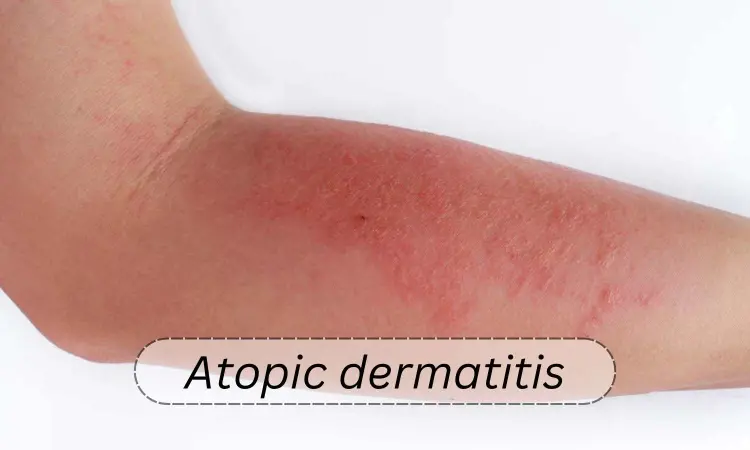- Home
- Medical news & Guidelines
- Anesthesiology
- Cardiology and CTVS
- Critical Care
- Dentistry
- Dermatology
- Diabetes and Endocrinology
- ENT
- Gastroenterology
- Medicine
- Nephrology
- Neurology
- Obstretics-Gynaecology
- Oncology
- Ophthalmology
- Orthopaedics
- Pediatrics-Neonatology
- Psychiatry
- Pulmonology
- Radiology
- Surgery
- Urology
- Laboratory Medicine
- Diet
- Nursing
- Paramedical
- Physiotherapy
- Health news
- Fact Check
- Bone Health Fact Check
- Brain Health Fact Check
- Cancer Related Fact Check
- Child Care Fact Check
- Dental and oral health fact check
- Diabetes and metabolic health fact check
- Diet and Nutrition Fact Check
- Eye and ENT Care Fact Check
- Fitness fact check
- Gut health fact check
- Heart health fact check
- Kidney health fact check
- Medical education fact check
- Men's health fact check
- Respiratory fact check
- Skin and hair care fact check
- Vaccine and Immunization fact check
- Women's health fact check
- AYUSH
- State News
- Andaman and Nicobar Islands
- Andhra Pradesh
- Arunachal Pradesh
- Assam
- Bihar
- Chandigarh
- Chattisgarh
- Dadra and Nagar Haveli
- Daman and Diu
- Delhi
- Goa
- Gujarat
- Haryana
- Himachal Pradesh
- Jammu & Kashmir
- Jharkhand
- Karnataka
- Kerala
- Ladakh
- Lakshadweep
- Madhya Pradesh
- Maharashtra
- Manipur
- Meghalaya
- Mizoram
- Nagaland
- Odisha
- Puducherry
- Punjab
- Rajasthan
- Sikkim
- Tamil Nadu
- Telangana
- Tripura
- Uttar Pradesh
- Uttrakhand
- West Bengal
- Medical Education
- Industry
Atopic Dermatitis Linked to Increased Risk of Neuropsychiatric Disorders in Adults

A recent large-scale retrospective analysis revealed that adults with atopic dermatitis (AD) have a significantly higher prevalence of neuropsychiatric disorders, including anxiety, depression, and obsessive-compulsive disorder (OCD), regardless of the severity of the skin condition. This study was published in the Journal of the European Academy of Dermatology and Venereology (JEADV) by Joel Gelfand and colleagues.
Atopic dermatitis (AD) is a common skin condition, and numerous studies have indicated a link between AD and neuropsychiatric disorders, such as depression, anxiety, ADHD, autism, and OCD. However, this study aimed to provide a longitudinal assessment of the impact of AD severity on the risk of neuropsychiatric disorders in adults.
The study involved a retrospective cohort analysis of electronic health records from general practices in the UK. Researchers identified 625,083 adults with AD and matched them with 2,678,888 adults without AD. AD severity was assessed based on the type of therapy, including referral to a dermatologist, and the outcomes evaluated included a range of neuropsychiatric conditions.
The study found that patients with AD had a significantly higher risk of developing neuropsychiatric disorders. The most substantial association was observed with OCD, followed by anxiety and depression. Notably, these associations were consistent across all degrees of AD severity. Patients with mild or moderate AD also exhibited an increased risk of autism, ADHD, bipolar disorder, and suicidal tendencies.
- The study, conducted in the UK, found the strongest association with OCD, occurring almost 50% more often in patients with AD, with anxiety and depression showing a 14% higher prevalence.
- Patients with mild or moderate AD also exhibited increased rates of autism, attention deficit-hyperactivity disorder (ADHD), bipolar disorder, and suicidal tendencies.
- The analysis revealed the following hazard ratios (HRs) for the AD group compared to the no-AD group:
- OCD: HR 1.48
- Anxiety: HR 1.14
- Depression: HR 1.14
All three conditions exhibited significantly higher risks in patients with AD, and these risks were consistent across all AD severity categories. Autism risk was also significantly increased in patients with mild or moderate AD, and bipolar disorder was driven by moderate AD. However, AD had no association with schizophrenia, and patients with severe AD had a lower risk of schizophrenia. The risk of suicidal ideation or attempted suicide was higher in all patients with AD, driven by patients with mild or moderate AD. Completed suicide was increased in patients with mild or moderate AD but decreased in those with severe AD.
This study provides further evidence of the association between atopic dermatitis and neuropsychiatric disorders in adults. It emphasizes the need for clinicians to inquire about mental health in patients with AD and calls for further research to explore the mechanisms connecting AD to these neuropsychiatric outcomes. Understanding these relationships will help optimize screening and treatment approaches, ultimately reducing the burden of neuropsychiatric disorders in AD patients.
Reference:
Journal of the European Academy of Dermatology and Venereology
Source Reference: opens in a new tab or windowWan J, et al "Neuropsychiatric disorders in adults with atopic dermatitis: a population-based cohort study" J Eur Acad Dermatol Venereol 2023; DOI: 10.1111/jdv.19518.
Dr Riya Dave has completed dentistry from Gujarat University in 2022. She is a dentist and accomplished medical and scientific writer known for her commitment to bridging the gap between clinical expertise and accessible healthcare information. She has been actively involved in writing blogs related to health and wellness.
Dr Kamal Kant Kohli-MBBS, DTCD- a chest specialist with more than 30 years of practice and a flair for writing clinical articles, Dr Kamal Kant Kohli joined Medical Dialogues as a Chief Editor of Medical News. Besides writing articles, as an editor, he proofreads and verifies all the medical content published on Medical Dialogues including those coming from journals, studies,medical conferences,guidelines etc. Email: drkohli@medicaldialogues.in. Contact no. 011-43720751


